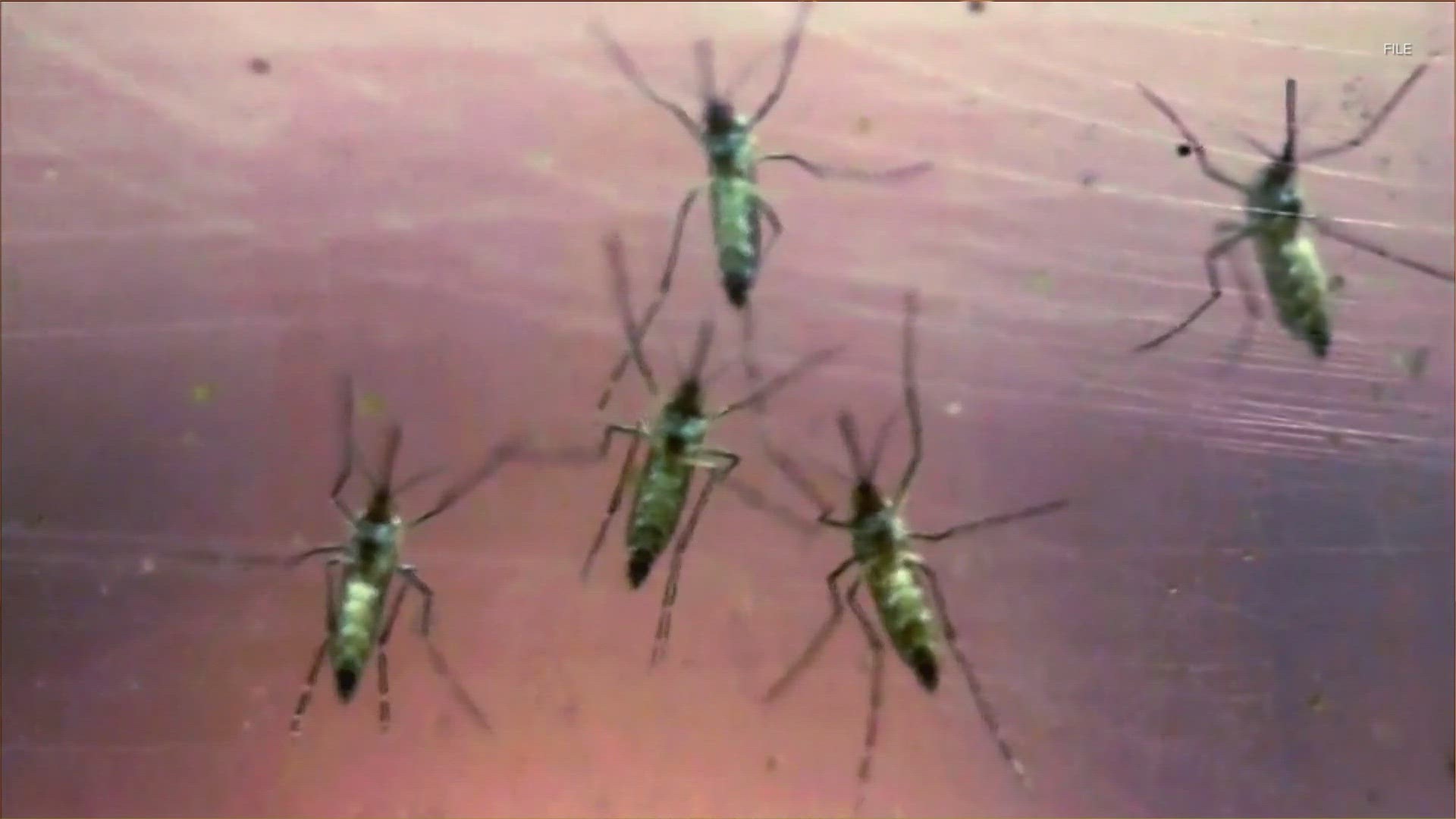WILLIAMSON COUNTY, Texas — The Williamson County and Cities Health District (WCCHD) is reporting the first human case of West Nile virus so far this year.
The WCCHD said the patient is a female resident of northern Williamson County and was diagnosed with West Nile neuroinvasive disease. Additional information about the patient will not be released.
West Nile virus is spread by the bite of an infected mosquito. The WCCHD said mosquitoes can become infected when they feed on the blood of infected birds and can then transmit the virus to humans and animals. Severe West Nile infections can cause neurologic complications, including encephalitis and/or meningitis.
So far this year, several local health districts have reported infected mosquitoes, including several instances in Williamson County. However, this is the first human case in the Austin area.
“Mosquito activity continues to be very high across Central Texas, and we would like to encourage the community to be careful when going out outside to enjoy activities, especially early mornings at dawn and evenings at dusk,” Dr. Amanda Norwood, medical director for the WCCHD, said. “Please follow the 3Ds to do everything you can to avoid mosquito bites.”
The 3Ds are:
- Defend: Whenever you’re outside, use insect repellents that contain DEET or other EPA-approved repellents and follow instructions
- Dress: Wear long, loose and light-colored clothing when outdoors, especially at dawn and dusk
- Drain: Drain or treat all standing water in and around your home or workplace where mosquitoes could lay eggs
The WCCHD said symptoms of West Nile infection include body aches, headache and fever, a skin rash on the "trunk" of the body and swollen lymph nodes. Those 50 years old and older and/or with compromised immune systems are at a higher risk of severe symptoms, which can include coma, disorientation, paralysis, stiffness, vision loss and, in rare cases, death.
West Nile virus is not contagious among humans, and there is no vaccine or specific treatment for the virus.
To learn more, you can visit www.wcchd.org/fightthebite or the Texas Department of State Health Services' West Nile website.

